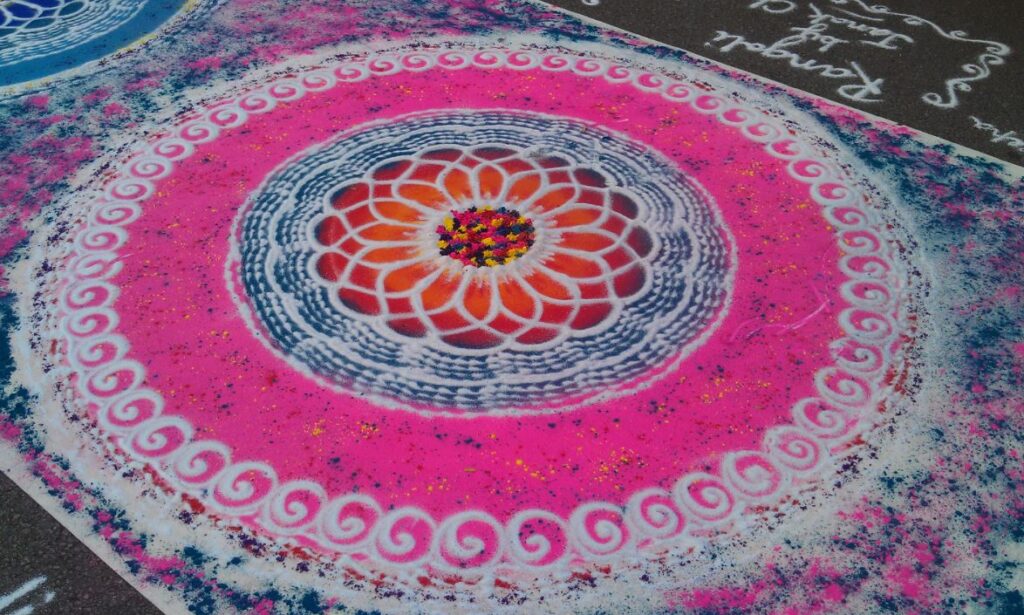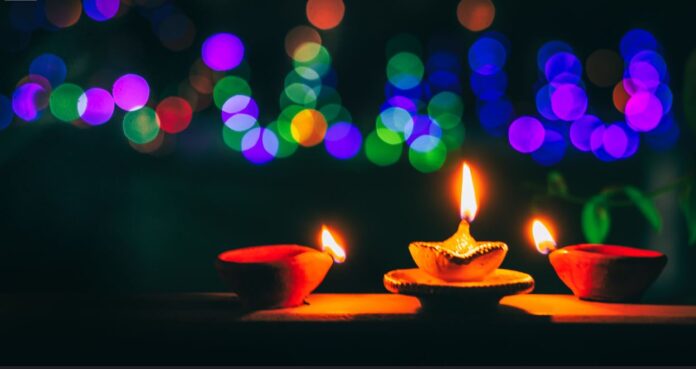Via Flickr Creative Commons by Sunny M5
By Shree Baphna, AsAmNews Staff Writer
When I was little, I would always feel tinges of jealousy around Christmas time. Every other house on the street had lights decking their roofs and chimneys, while ours offered up a solitary string of lights around our front door. You couldn’t even see them if you were looking at our house from a particular angle.
I would always ask my mother why we wouldn’t go all out for Christmas decorations, just once this year? She would consistently reply explaining how Christmas wasn’t “our holiday” and that we “have a Christmas of our own”.
“Our Christmas is Diwali”, she would say. I would always feel a little deflated whenever she gave me that explanation. Diwali didn’t mean snow, Christmas trees, hot chocolate and presents. To me, Diwali meant stuffing myself into itchy, traditional Indian clothes, going to people’s houses to wish them well even though I did not know who they were at all, and sitting through a religious puja where my nose would prickle from the burning incense sticks. For a child, this was not a fun version of “our Christmas”.
When I was almost 11, my family moved overseas to India. That year, my experience of Diwali was completely different. In India, I realized everyone got a few days off for Diwali, which made everything more festive. Right before break, students and teachers alike would dress up and my school would indulge us in arts and crafts activities like rangoli (a traditional design/pattern made from ground rice) or diya making (clay lamps that are lit on Diwali day). Being in India also meant I had a wider selection in choosing what traditional outfits I could shop for- goodbye to my itchy clothes!
The best part of all were the lights- Diwali is the festival of lights, and I could finally see justice being done to that. Everywhere I went, no matter which part of town it was, I would see lights strung up on every building, hanging in every doorway. Window sills were decked with flickering oil diyas, and the air was headily laden with fried smells of traditional festival food. Additionally, I found out that people did indeed give out presents to each other on Diwali day- I received everything from new clothes to chocolate, and even money notes being slyly shoved into my hand whilst being caught up in crushing hugs from relatives.

It was an entirely different world from the Diwalis I remember spending in the United States. As I got older, I began to understand the variation in cultural practices as they translated from one part of the world to another. Diwali in the States always seemed more subdued, more tame, and more removed. It was almost an abbreviated version of the festival. Diwali in India- the heart and birthplace of the holiday- was an explosion of color, brightness, and noise. It was a celebration that oozed spontaneity and hints of chaos. This Diwali seemed to feel more like “our Christmas”- a festival that was celebrated with as much enthusiasm as Christmas was in the United States.
However, these stark contrasts do not diminish my appreciation for the Diwali celebrations of my childhood back in the United States. I began to see, in hindsight, the small oasis Diwali represented to my immigrant family. Of course, my gripes with how the festival was celebrated back then was related to my immature demands as a child. As most children, I was attracted more to the flashiness of Diwali rather than to the significance of it. Diwali was one of the few times of the year that my family was able to claim something for themselves in a country that otherwise was unfamiliar.
The world today is more globalized than it ever was. I have met more and more people everywhere who know what Diwali is, and take the time to wish those who celebrate it. What used to be a little oasis has grown closer to becoming a seamless patch in the diverse quilt of America. Although the progress of acceptance and appreciation has been halted many times in the past few years, there is a small hope that this progress can now continue. Diwali has been an important beacon of hope for many of my family and friends. It is a time where we find comfort and joy in each other’s company, and in the celebration our heritage.
Whether you celebrate Diwali or not, the most important thing I would like for you to remember is the wondrous power of light, and the ability it has to dispel darkness. Stay safe, take care of each other, and a very happy Diwali to those of you who do celebrate.
AsAmNews has Asian America in its heart. We’re an all-volunteer effort of dedicated staff and interns. Check out our new Instagram account. Go to our Twitter feed and Facebook page for more content. Please consider interning, joining our staff, or submitting a story.


